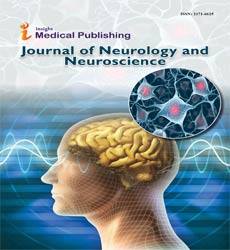Abstract
Burden and Coping Strategies in Caregivers of Stroke Survivors
Introduction: Care of stroke patient is a matter of enduring stress and leads to considerable amount of burden among caregivers. Little is known about the ways in which families cope while caring for a relative with stroke in developing countries. The aim of the present study was to explore burden and coping strategies in caregivers of stroke survivors and identify the relationships between burden and
coping strategies among them.
Methods: Caregivers were assessed using Zarit burden interview schedule (ZBIS) and Coping checklist (CCL). A descriptive correlation design was used. The sample comprised 100 caregivers of the stroke survivors from selected community setting and outpatient department of different tertiary care hospitals at Punjab.
Results: The result revealed that level of burden reported by caregivers of stroke patient was high. The most coping strategies used by caregivers were acceptance, getting social support, problem solving and seeking help of religious things. However, denial and distracting negatively were used as least common coping strategies by caregivers. Burden was positively and significantly associated with
denial or blaming coping strategies.
Conclusion: Study concluded that caregivers experienced higher degree of burden. Burden was significantly correlated with coping strategies. The study felt, the need of development of psycho educational program to assist caregivers to cope successfully with burden resulting from the care of stroke survivors.
Author(s):
Rajesh Kumar, Sukhpal Kaur, Reddemma K
Abstract | Full-Text | PDF
Share this

Abstracted/Indexed in
- Google Scholar
- Open J Gate
- Genamics JournalSeek
- The Global Impact Factor (GIF)
- China National Knowledge Infrastructure (CNKI)
- Directory of Research Journal Indexing (DRJI)
- WorldCat
- Proquest Summons
- Scientific Journal Impact Factor
- Secret Search Engine Labs
- Euro Pub
Open Access Journals
- Aquaculture & Veterinary Science
- Chemistry & Chemical Sciences
- Clinical Sciences
- Engineering
- General Science
- Genetics & Molecular Biology
- Health Care & Nursing
- Immunology & Microbiology
- Materials Science
- Mathematics & Physics
- Medical Sciences
- Neurology & Psychiatry
- Oncology & Cancer Science
- Pharmaceutical Sciences

